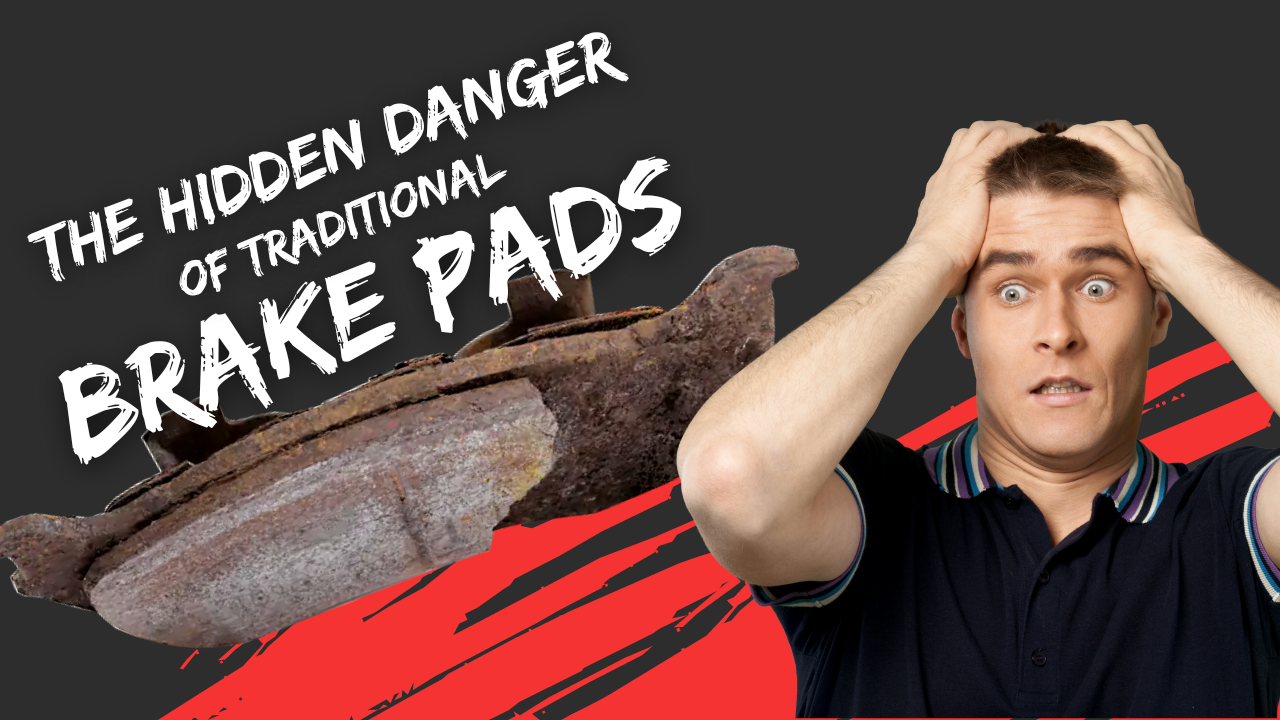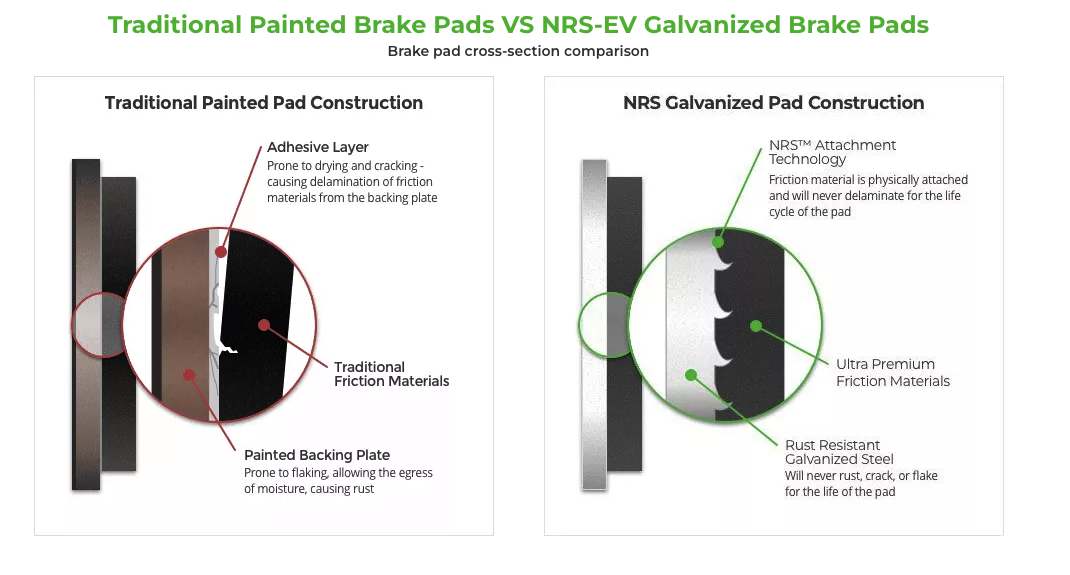|
After his foot punched the brake pedal, Bryan immediately knew he had a problem. There was a loud ‘clunk’ followed by a screeching worse than anything he’d heard before. The Tesla slowed partially (thanks to regenerative braking), but he needed more stopping force than what the electric motors provided. The car in front of him didn’t see it coming either, and the resulting collision sent broken parts flying in all directions. At the time when he needed the brakes the most, they failed. Luckily, I made this story up. So don’t worry about Bryan and his Tesla, they’re fine. But the reality of brake failure is a real concern, especially for EV owners… that is if they knew about the dangers. Unfortunately, most don’t know about the hidden dangers of traditional brake pads. I didn’t know either. I thought brakes on EVs weren’t something that needed attention because they rarely get used, if at all, and I wasn't alone in thinking like this. However, this misconception that EV owners have about how braking systems in these vehicles work could result in a catastrophic situation if not properly addressed. Knowing what causes the brake pads to fail and how to prevent that from happening could literally mean the difference between life and death. So what causes brake pads to fail? I recently had a conversation with Montu Khokhar - CEO of NUCAP Technologies and NRS Brakes, and Blake Fuller - team owner and driver of Electric Performance Racing, to discuss this very important topic and what they shared with me was very revealing. Watch the conversation I had with Montu Khokhar and Blake Fuller here:Traditional brake pads are made up of a steel backing plate and the brake pad friction material that is adhered to the backing plate with a specialized glue. Typically, in a gas-powered vehicle when the driver steps on the brake pedal, this friction material is pressed against the brake rotor causing friction. This friction turns the energy of vehicle movement into heat which dissipates any moisture that collected on the brake pads.
However, with electric vehicles and hybrids, that rely on regenerative braking, the friction brakes are rarely, if ever, used. This can cause moisture to build up in between the friction material and the backing plate resulting in separation of the pad, rust, and corrosion. All of this while the friction material itself looks relatively unscathed. To even an experienced technician, a quick "brake check" only examines the remaining pad material to determine when replacement is necessary. They don't disassemble the braking system to examine the pads closely... and if there is any of the above issues going on, it's likely to be missed. So what can owners do? There are a few options. The first being that every now and then you stand on the brakes to exceed the available regenerative braking from the electric motors and force the friction material to contact the brake rotors. This will result in the process outlined above causing the moisture to dissipate and avoid the problem. However, as you might be thinking, this could cause any number of other problems, not to mention that it isn't exactly the safest thing to do to your vehicle. Secondly you can replace the brake pads with a set of pads that use a galvanized steel backing plate that won't rust or corrode. There is currently only one company that is making these types of pads: NRS Brakes. This isn't a promotion for NRS Brakes, and I haven't received anything from the company to promote their products.. but honestly... when I heard about what they were doing, I couldn't resist learning as much as I could and bringing this valuable information to all of you. This problem is big, and I really feel that knowing this information could be the difference between life and death for the person that finds themselves in the same situation as our fictional Bryan and his Tesla. So would I recommend replacing your brake pads with NRS galvanized brake pads? Yes, absolutely 100%. But it's because I want you to be safe. I want you to know you're safe, and have peace-of-mind that you really don't have to worry about your brakes. Replace the false misconception with the real reality and we'll all live in a safer world. And finally, if you're a visual person, I stole this photo (below) from the NRS web page that show the differences between traditional brake pads and the NRS galvanized brake pads. You're welcome. |
Details
Categories
All
Archives
June 2024
|
- Home
-
Learn.
-
EV 101
>
- EV Terminology
- What is an EV?
- Pros and Cons
- EV Types
- Are used EVs a good option?
- How much range do you really need?
- Real world range
- Types of charging and charging stations
- How Long Does It Take To Charge
- EV Charging Apps
- All about EV Batteries
- Regenerative Braking
- BEV System Components
- EV Maintenance
- EV Mythbusting >
- Podcast
- Newsletter
- Magazine
- Articles >
- Vehicle Reviews
- Alternative Fueling Station Locator
-
EV 101
>
- Connect.
- Experience.
- Deals
- Shop
- About Us




